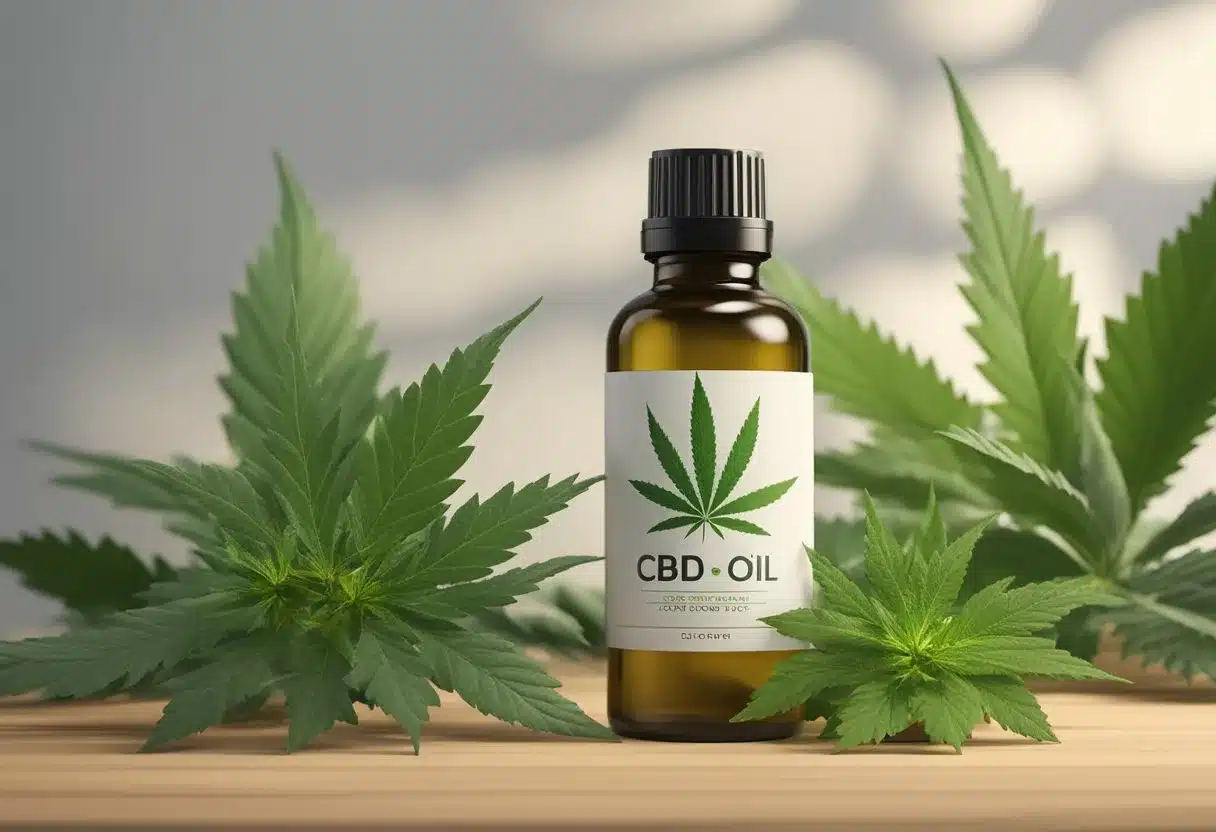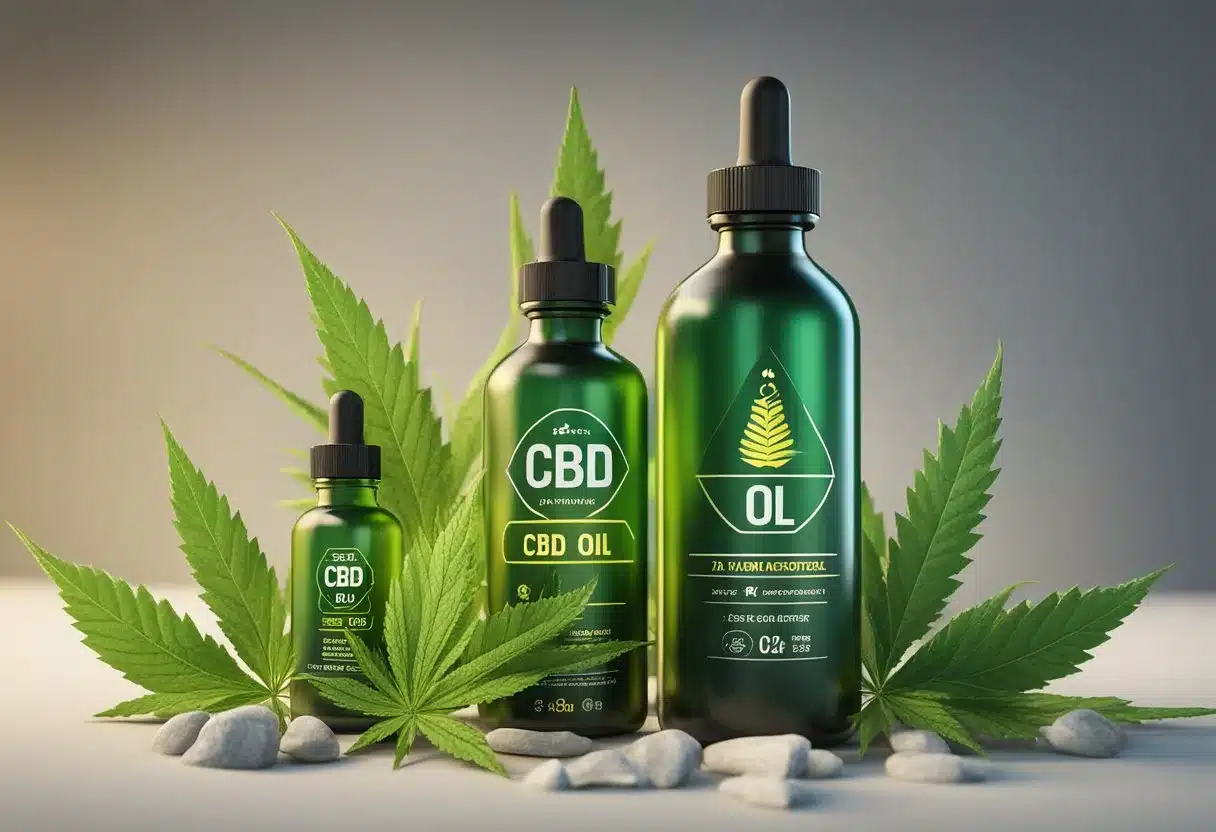Cannabidiol oil, commonly known as CBD oil, is derived from the cannabis plant. Recently, it has attracted considerable interest as a natural remedy for a variety of ailments. CBD oil is praised for providing pain relief and relaxation without the psychoactive effects associated with marijuana. As research continues, more people are turning to this oil for its potential health benefits.

For those curious about the versatility of CBD, it aids not only in pain relief but also in managing anxiety and even treating specific forms of epilepsy. The popularity of CBD oil has led to a broader acceptance in daily life, whether it’s used for medical purposes or simply as a part of a wellness routine. More information on its uses and benefits can be found in authoritative sources like theone from Mayo Clinic.
Knowing the benefits of CBD oil isn’t enough; understanding its safe usage, potential side effects, and legal status is also critical. While studies have shown promise, such as CBD’s potential role in acne management as noted by Clinical Investigations, it is important for consumers to stay informed. This ensures not just effective but also safe incorporation of CBD oil into one’s routine.
Key Takeaways
- CBD oil offers pain relief and relaxation without psychoactive effects.
- It helps with anxiety, epilepsy, and possibly acne management.
- Understanding safe usage and legal status is crucial for optimal benefits.
Understanding CBD

CBD, or cannabidiol, is a compound found in cannabis plants that has gained attention for its potential health benefits. It is distinct from THC, the compound that creates a high, and can be derived from either hemp or marijuana plants.
The Science of CBD
Cannabidiol (CBD) is a cannabinoid found in the cannabis plant. It interacts with the body’s endocannabinoid system, which helps regulate various functions like sleep, immune response, and pain. Unlike THC, or tetrahydrocannabinol, CBD does not cause a psychoactive effect.
CBD works by binding to receptors in the endocannabinoid system. These receptors are found throughout the body, including the brain and immune cells. CBD influences these receptors in a way that can reduce inflammation and pain. It’s been studied for its potential to help conditions like anxiety, chronic pain, and epilepsy.
Differentiating CBD from THC
CBD and THC are both cannabinoids, but they have very different effects. THC is the psychoactive component of cannabis that makes users feel high. In contrast, CBD is non-psychoactive and does not produce a high.
CBD is often preferred for medical use because it provides therapeutic benefits without the mind-altering effects of THC. Many people use CBD to manage conditions such as anxiety and chronic pain without experiencing the euphoric effects associated with THC.
The legal status of CBD and THC differs as well. CBD is legal in many places, often if it is derived from hemp. THC, being psychoactive, remains more tightly regulated.
CBD Source Materials: Hemp vs Marijuana
CBD can be derived from both hemp and marijuana, both of which are varieties of the cannabis plant. The major difference lies in their THC content. Hemp contains no more than 0.3% THC, while marijuana has higher levels of THC.
Hemp-derived CBD is legal in many regions because it has negligible THC, making it non-psychoactive. This form of CBD is widely available and is used in oils, capsules, and topical creams.
Marijuana-derived CBD, on the other hand, may contain higher levels of THC and is often subject to stricter regulations. Its use is typically limited to states and countries where marijuana is legal for medicinal or recreational use.
For consumers, understanding whether their CBD is hemp-derived or marijuana-derived is important for both legal and health reasons.
Legal and Regulatory Considerations

CBD oil regulation involves both federal and state laws. The FDA has specific guidelines for CBD products, while state laws can vary widely, affecting availability and legality.
FDA Stance on CBD
The Food and Drug Administration (FDA) is responsible for regulating CBD products. The FDA treats CBD like any other substance it regulates, meaning it requires rigorous scientific evidence to support claims about safety and effectiveness. CBD is not yet FDA-approved for all uses, but it has been approved for treating certain types of epilepsy with the prescription drug Epidiolex.
The FDA has been clear that marketing CBD as a dietary supplement or adding it to food products is not currently permitted. They are focused on ensuring consumer safety and accurate labeling. The lack of approval for some uses means consumers should be cautious about unproven health claims. More information can be found on the FDA’s website regarding their stance and guidelines on CBD products.
Understanding State Laws and Prescriptions
State laws regarding CBD oil can be complex and vary significantly. Some states allow the sale of CBD without a prescription, while others require it to be prescribed by a healthcare professional. These differences can create confusion for consumers trying to navigate legal landscapes.
In some states, CBD is available in various forms, from oils to edibles, while in others, there are strict limitations on its sale and use. Knowing the specific laws in your state is crucial, as it impacts both the accessibility and legality of CBD products.
The development of CBD laws at the state level has implications for both manufacturers and consumers, influencing everything from product availability to legal risks. For example, you can explore more about state-based regulatory schemes and their potential conflicts on NCBI.
Health Benefits of CBD Oil

CBD oil is known for its potential to help with pain management, mental health conditions, neurological disorders, and inflammation-related illnesses. It offers a variety of benefits without any of the psychoactive effects commonly associated with THC.
Pain Management and Chronic Pain
CBD oil is increasingly popular for managing pain, especially chronic pain. Studies show it can help reduce pain from conditions like arthritis and multiple sclerosis. Many people use CBD oil because it interacts with the body’s endocannabinoid system, which helps regulate pain responses.
Patients with chronic pain often find that CBD oil can provide relief without the side effects of traditional pain medications. This is particularly important for those who need long-term treatment and want to avoid dependence on opioids.
CBD and Mental Health
CBD oil has potential benefits for mental health. It may help reduce anxiety and depression. People with anxiety often report feeling calmer and more relaxed when using CBD oil. This can be especially helpful for those who find traditional anxiety medications either ineffective or undesirable due to side effects.
There is also evidence that CBD oil can have mood-stabilizing effects, which can benefit people dealing with depression. This makes it an attractive option for those looking for natural mental health support.
Potential Benefits for Neurological Disorders
People with neurological disorders may also benefit from CBD oil. It has shown promise in reducing seizures and improving the quality of life for those with epilepsy. Conditions like multiple sclerosis, Alzheimer’s disease, and Parkinson’s disease may also see some benefit.
CBD oil’s anti-inflammatory and neuroprotective properties can help manage symptoms of these disorders. For example, some patients with multiple sclerosis report reduced muscle spasticity and pain.
CBD for Inflammation and Autoimmune Conditions
CBD oil is known for its anti-inflammatory properties. It can help reduce inflammation, which is often at the root of many autoimmune conditions like arthritis and lupus. This can lead to decreased pain and improved mobility.
Patients with conditions like inflammatory bowel disease and rheumatoid arthritis may find relief with CBD oil. By reducing inflammation, CBD can help manage symptoms and improve daily functioning for those with autoimmune diseases. This makes CBD oil a valuable addition to the treatment plans for these conditions.
Usage of CBD Oil

CBD oil is used for various health benefits. It’s important to know the optimal dosage and best delivery methods, as well as the distinctions between dietary supplements and pharmaceuticals.
Optimal Dosage and Delivery Methods
The optimal dosage of CBD oil can vary based on factors like weight, age, and the condition being addressed. For precision, it’s often best measured using tinctures or oils, which are mixed with a carrier oil for easier absorption. Tinctures allow users to measure exact amounts using a dropper, ideal for sublingual (under the tongue) application.
Capsules and edibles like gummies are also popular. They provide a fixed dose of CBD, which ensures consistency and convenience. Topical CBD products, such as creams and balms, are used for localized pain or skin conditions, offering targeted relief without systemic effects.
These methods provide flexibility, making it easier for users to integrate CBD into their routines. It’s advisable to start with a low dose and gradually increase to determine the right amount while monitoring the body’s response.
Dietary Supplements vs Pharmaceuticals
CBD oil can be found both as a dietary supplement and as a prescription medication. Dietary supplements, available in forms like oils, capsules, and gummies, are marketed for general wellness and may support sleep, anxiety reduction, and pain relief. They are not strictly regulated for consistency and efficacy, leading to variability in the quality of different products.
In contrast, prescription forms of CBD are regulated and standardized. These include products like Epidiolex, a pharmaceutical-grade extract used for specific medical conditions such as epilepsy. Prescription CBD ensures precise dosages and undergoes rigorous testing for safety and efficacy.
Understanding the distinction between dietary supplements and pharmaceuticals is crucial. It helps users make informed decisions based on their specific health needs and the reliability of the products available.
Side Effects and Safety Concerns

CBD oil is generally considered safe but can cause some side effects in certain individuals. It is important to be aware of these side effects and the safety concerns related to its long-term use.
Common Side Effects of CBD
Some people may experience common side effects when using CBD oil. These can include drowsiness, which may affect the ability to perform tasks like driving or operating machinery. Other potential side effects are diarrhea and fatigue, which can impact daily activities.
Changes in appetite have also been reported. Users might notice an increase or decrease in their desire for food. Additionally, there could be mental health impacts such as mood changes or increased anxiety.
CBD oil can interact with other medications, potentially altering their effectiveness. This interaction can lead to unexpected side effects, so it is important to consult with a healthcare provider before using CBD oil, especially if taking other medications.
Addressing Long-Term Use Risks
The long-term effects of CBD oil are not yet fully known, and ongoing research is needed to understand them better. Some studies suggest a risk of liver damage, especially with prolonged use or high doses.
Continuous use of CBD oil might also lead to tolerance, where higher doses are needed to achieve the same effect. However, current evidence indicates that CBD does not lead to addiction or substance use disorder.
It is crucial to monitor for any unusual symptoms when using CBD oil over extended periods. Regular check-ins with a healthcare provider can help manage any potential risks associated with long-term use. They can also track for any developing side effects or changes in overall health.
CBD for Daily Life

CBD oil can play an important role in managing sleep disorders, easing anxiety, and enhancing daily productivity. It can help users feel more rested and improve overall mental wellbeing.
Improving Sleep and Managing Insomnia
CBD oil is known to help with sleep issues. Many people struggle with insomnia, which makes it hard to fall or stay asleep. Adding CBD oil to a nightly routine may promote better sleep cycles. Studies suggest that CBD might aid in increasing the amount of sleep while reducing the interruptions.
CBD’s calming properties can also benefit those who suffer from anxiety, which often causes insomnia. For those with sleep disorders, CBD can reduce symptoms without the side effects of traditional sleep aids. This makes it a safer option for long-term use.
CBD Influence on Mood and Productivity
Using CBD oil daily can positively affect mood and productivity. Stress and anxiety can make it challenging to stay focused and productive. CBD oil may reduce anxiety levels, allowing individuals to handle daily tasks with less worry. This can be particularly beneficial for activities like public speaking which often induce significant stress.
For those prone to mood swings, CBD helps stabilize emotions. Consistently managing stress can improve overall productivity, making it easier to achieve goals. By reducing anxiety and enhancing mood, CBD oil supports a more balanced and productive daily life.
Beyond Human Use: CBD in Veterinary Medicine

CBD oil is gaining popularity for treating various conditions in pets. Evidence supports its potential benefits in managing pain, anxiety, and seizures in animals.
Pets and CBD Oil
Interest in using CBD oil for pets has increased significantly in recent years. Pet owners are turning to CBD to address conditions such as chronic pain, anxiety, and seizures. Research suggests that CBD’s anti-inflammatory and anti-anxiety properties can be beneficial for pets, improving their quality of life.
Veterinary studies, although limited, show promising outcomes. For instance, a reduction in seizure frequency was observed in dogs treated with CBD oil. Despite its potential, it’s important to consult with a veterinarian to determine the appropriate dosage and ensure its safety.
Pets respond differently than humans to CBD. Therefore, monitoring and professional guidance are essential to avoid any adverse effects and ensure the treatment’s effectiveness.
Consumer Considerations

When choosing CBD products, it’s important to focus on purity and labeling to ensure safety and effectiveness. Consumers should also be aware of potential interactions with other medications.
Purity and Labeling of CBD Products
Checking the purity of CBD products is essential. Consumers should look for third-party lab reports that verify the absence of contaminants like pesticides, heavy metals, and mold. Reliable products usually have a Certificate of Analysis (COA) available on the manufacturer’s website.
CBD products must include accurate labeling. Labels should list the amount of CBD per serving, the ingredients, and any other relevant information. It’s also crucial to verify that the product contains less than 0.3% THC to comply with federal regulations. Consumers should be wary of vague labels or products without proper labeling. Consulting a pharmacist can offer additional guidance on choosing high-quality products.
Interactions with Other Medications
CBD can interact with certain prescription drugs and over-the-counter medications. It’s vital to consult with a healthcare provider before starting CBD, especially if taking other medications. CBD may affect how the liver processes some drugs, altering their effectiveness.
Common interactions include blood thinners, heart medications, and drugs that suppress the immune system. A pharmacist can help determine whether CBD is safe to use alongside specific medications. Moreover, consumers should monitor for any unusual side effects and report them to their healthcare provider promptly.
Choosing CBD products with clear labeling and understanding potential interactions ensures a safer experience.
Frequently Asked Questions

CBD oil offers a variety of potential benefits, including skin health improvement, pain relief, mood enhancement, and interaction with certain body functions. It also has some associated side effects and varying onset times for its effects.
What can CBD oil potentially do for skin health?
CBD oil may help with reducing acne due to its anti-inflammatory properties. It can also moisturize and soothe the skin. Some people use it for conditions like eczema and psoriasis. The oil’s antioxidants might reduce visible signs of aging.
What are the potential effects of CBD oil when taken sublingually?
Taking CBD oil sublingually allows it to enter the bloodstream quickly through the tissues under the tongue. This method can be more effective for pain and anxiety relief. It typically bypasses the digestive system, resulting in faster effects compared to other methods such as edibles.
How does CBD oil interact with the human body?
CBD oil interacts with the endocannabinoid system (ECS) in the human body. The ECS helps regulate various functions like mood, pain, and sleep. CBD influences the body’s own cannabinoids to promote balance and homeostasis without producing a high.
What are the potential side effects associated with using CBD oil?
Common side effects may include fatigue, changes in appetite, and diarrhea. Some users might experience dizziness or dry mouth. It’s crucial to start with a low dose and monitor how your body responds to avoid adverse effects.
How quickly can one typically expect to feel the effects of CBD oil?
The onset time for CBD oil’s effects can vary. When taken sublingually, users might feel effects within 15-45 minutes. Edibles or capsules may take longer, often around 1-2 hours. The duration and intensity of effects also depend on the dosage and individual metabolism.
Are there any unique benefits reported from regular use of CBD oil?
Some users report long-term benefits such as improved sleep, reduced chronic pain, and better overall mood. For some, regular use has helped reduce symptoms of anxiety and depression. Long-term use may also support a balanced endocannabinoid system.